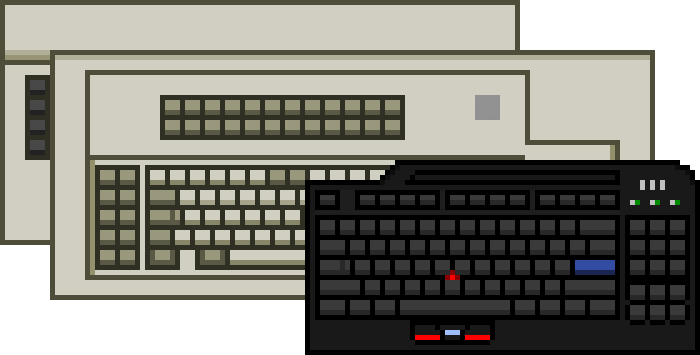P/N 1394429 - Model M Keyboard Details & Specs
Provided by the ASK Keyboard Part Number Database
IBM InfoWindow Twinax Display Station Enhanced Keyboard
| Type | Model M Enhanced Terminal Keyboard |
|---|---|
| Known host systems | IBM 3476 InfoWindow Display Station (IBM 5250 family) IBM 3477 InfoWindow Display Station (IBM 5250 family) IBM 3486 InfoWindow II Display Station (IBM 5250 family) IBM 3487 InfoWindow II Display Station (IBM 5250 family) IBM 3489 InfoWindow II Modular Display Station (IBM 5250 family) |
| OEMs or ODMs | IBM |
| Keyswitches | IBM membrane buckling springs |
| Earliest appearance | |
| Original keycaps | PBT with dye-sublimated legends |
| Cover colour | Pearl White |
| Branding | IBM grey oval badge |
| Feet | Single-setting elongated flip-out feet |
| Protocol | IBM Mode 2 (scancode set 3) |
| Connection | Grey coiled-style fixed modular-8P5C ("RJ-45") cable |
| Form factor | Full-size |
| Layout & language | 5250: Enhanced Typewriter Greek (ID 423) |
| Sources | Doc: IBM InfoWindow 3477 User's Guide (#GA18-2923-00) [source: bitsavers] Web: https:/ |
| Data last updated |

